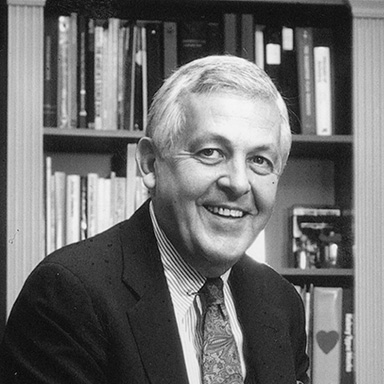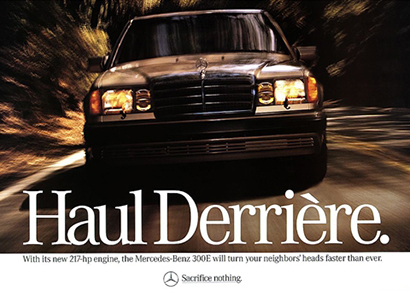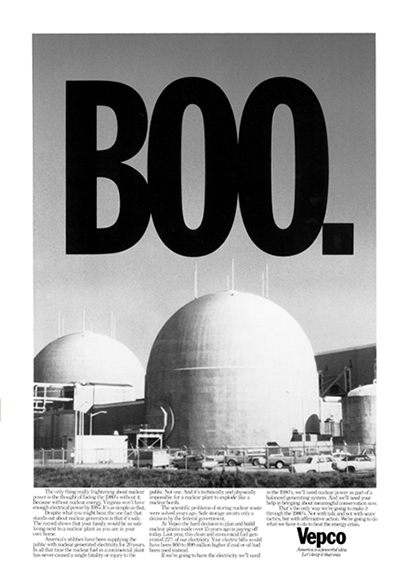Harry Jacobs
2001 Creative Hall of Fame Inductee
Advertising, Design, Illustration, Education
Harry Jacobs is a larger-than-life figure in advertising, known for his integrity, elegance, and humor. A former jazz drummer and graphic artist, he elevates ads with simplicity and stunning design. His influence has shaped many creative leaders, earning him a well-deserved place in The Creative Hall of Fame.

Career
Harry Jacobs has always been bigger than the business he’s in.
Don’t get my wrong. Advertising’s great: It’s big and grand. It’s just that Harry Jacobs is bigger and grander. If advertising was a person at a party, it might well be the person you want to hang around with (certainly ahead of politics and insurance and dentistry), but it may not be the one you want to take home to mother.
Harry, on the other hand, is both fun at a party-and my mother loves him. She loves him because he’s elegant and he stands tall and he always laughs hard at a good joke. She can see-like everyone can see-that he’s a gentle man of great integrity, high standards and remarkable taste. Mom may not know much about art direction or creative leadership, but she knows a good dresser when she sees one-and Harry in a sweater looks better dressed than the rest of us in out best tuxes. To top it all off, Mom can’t talk about Harry without telling everyone how handsome he is. (Frankly, I don’t see that last point, but if he landed Bobbi, he must have something going for him.)
Mom doesn’t know that he was once a jazz drummer, a graphic artist at the Pentagon and a world-class airplane modeler. She doesn’t know that he once whipped the whole creative department at the pool hall and carried around the nickname “The Stick” for about three weeks. But she does know if you get him talking about Bobbi or their kids or their growing army of grandchildren, he’ll go on forever. And she knows that if you run into Harry the first question he has for you doesn’t have anything to do with advertising or business, it has to do with you and your kids and how are you doing, really? Things like that mean a lot to a mom.

Big as he is, Harry has never stooped to make an ad. Instead, he lifts the ads to a higher level.
For one thing, he makes them bigger. Although he’s made some bang-up small space ads over the years, when we think of Harry, we all think of vast double truck monsters that, in Harry’s hands, somehow seem bigger than the newspaper itself.
He also makes ads simpler. When you’re Harry’s creative partner, you don’t spend much time actually making ads. Instead, you concentrate on strategy, on making sure everything gets right to the point.
In honing the message to its simplest, clearest elements, Harry makes more outlines than a high school English teacher. He increases his odds by exploring multiple directions-but each is picked clean of all extraneous baggage. (Sounds obvious, doesn’t it? Then why do most of us struggle with this challenge every day?)
But most of all, Harry lifts ads to a higher level with the most elegant, inevitable design you can imagine. When Harry was finished with an ad, it was impossible to imagine it art directed any other way.
And here’s what’s more amazing. That simple, elegant, gorgeous, big way of thinking was contagious. Westbrook caught it. And Torchia and Feuerman and Tench and DiSesa and Helm and Sullivan. While it’s all most creative directors can do to turn out an occasional great ad, Harry was turning out great creative leaders. Harry’s disciples went out and became creative directors at Chiat and Fallon and Wieden and McCann and JWT and numerous places large and small. And whether they acknowledged it or not, all those agencies learned the pain of knowing that nothing they did was ever quite good enough because in the back of their creative director’s mind was this horrible, unrelenting question: What would Harry think of it?

All of us at The Martin Agency know how lucky we are to have had so much of that Jacobs magic sprinkled on us. We are who we are because he is who he is.
Now Harry’s in The Creative Hall of Fame. It’s not his first hall of fame, incidentally, and it probably won’t be his last. But this one’s special. This is writers and art directors and creative directors coming together to say thank you. I’m the one who had the honor of telling him about this. He was shocked (which he shouldn’t have been) and so choked up he couldn’t speak.
Once upon a time, a young copywriter and future Hall-of-Famer, Tom McElligott, wrote Harry a note in which he articulated his career goal. He said he wanted to be like Harry.
Don’t we all, Tom. Don’t we all.
– Mike Hughes
